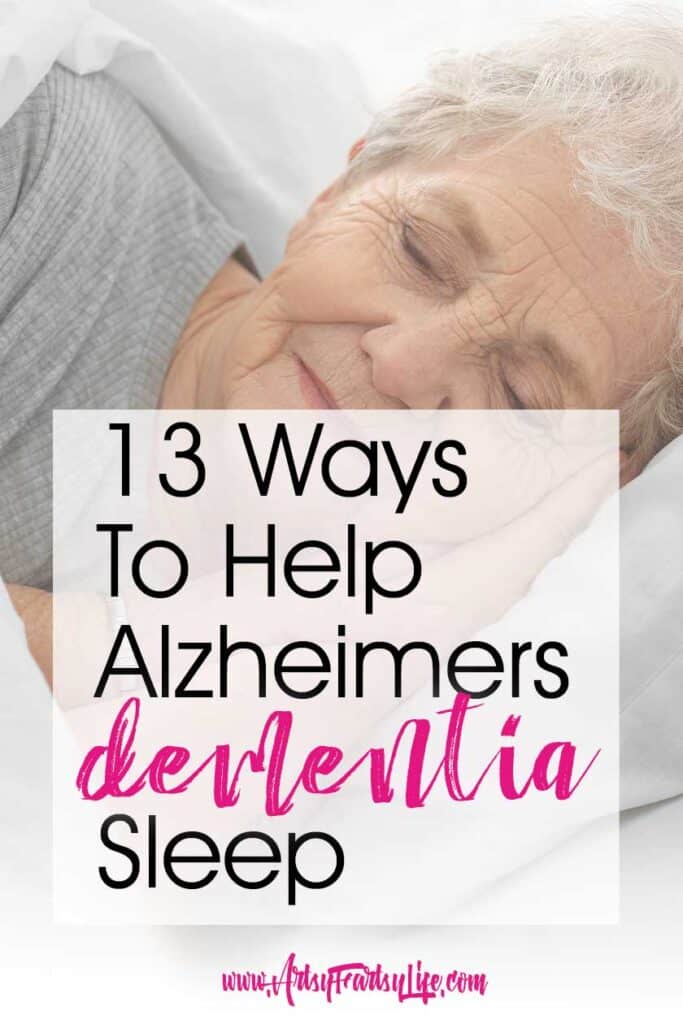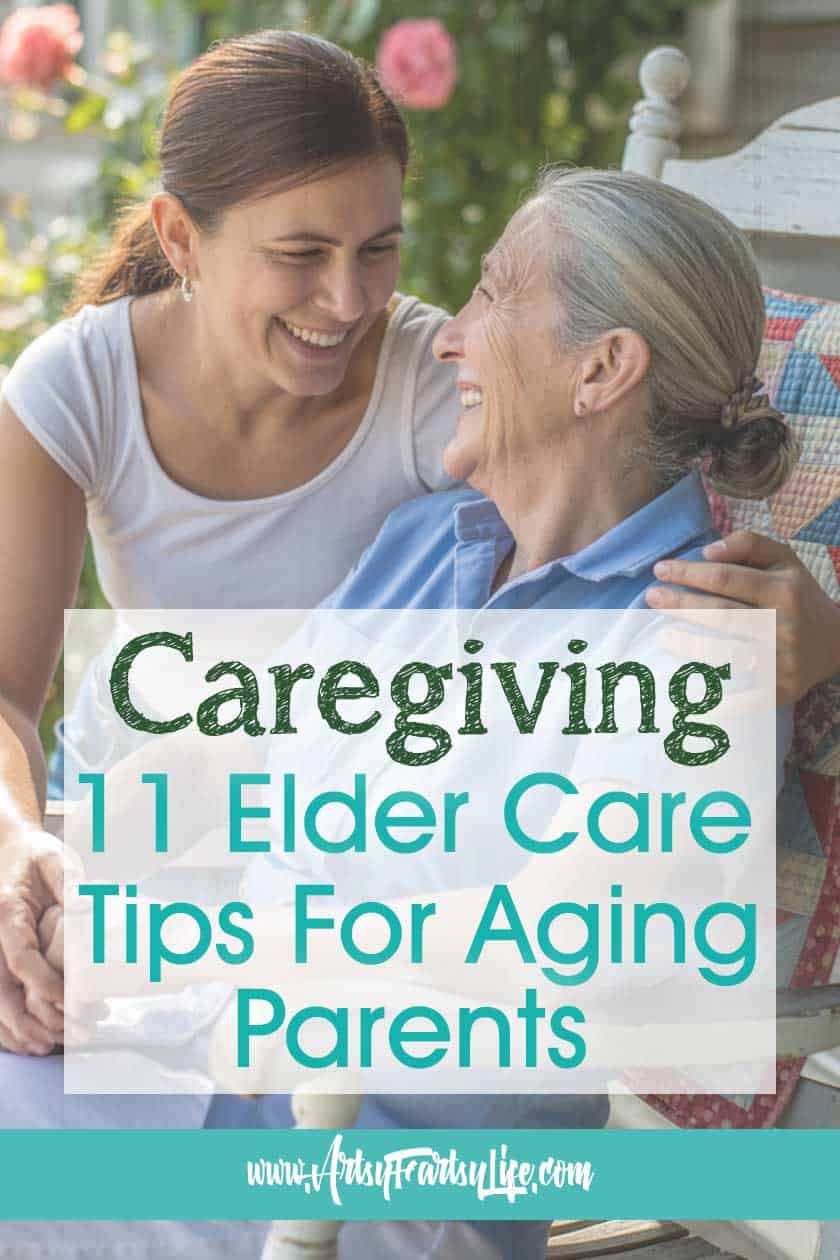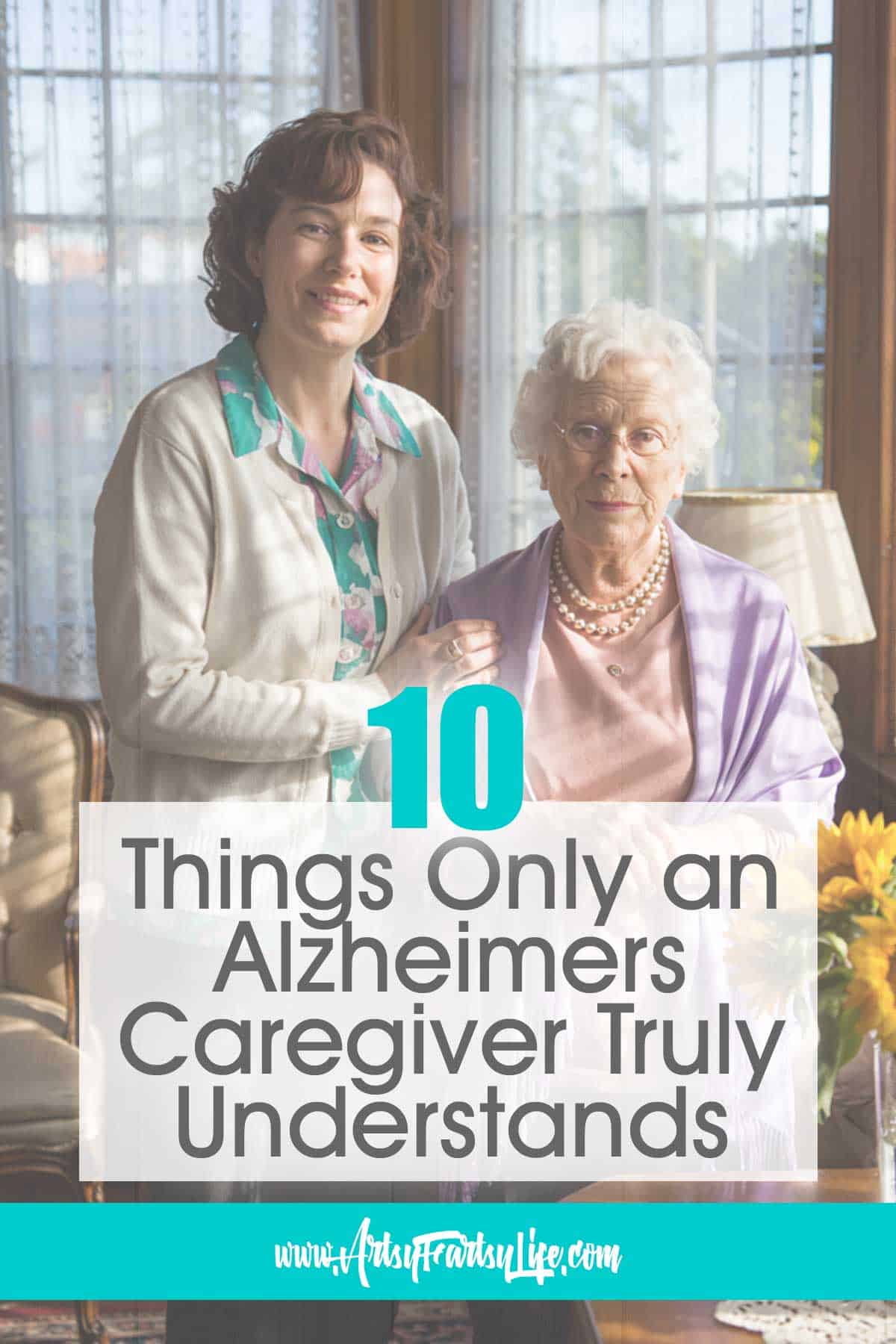Getting your loved one to lay down to sleep is sometimes a challenge! Here are some tips and ideas that can help family members with getting them to stop roaming around all night so they (and you) can get some sleep! Includes medications, natural solutions and practical advice.

Why Don't Dementia Or Alzheimers Sleep?
Before we get too far along, let's talk about why your loved one might not want to go to sleep.
Lack of Exercise
Many of our loved ones stop wanting to do things. They might sit on their chair or lie down all day, which doesn't expend much energy. This can lead to less of a need to sleep at night!
Sundowners
Sundowners is when your loved one starts to get more confused the later in the day it gets. For our Mom, mornings are her best time, with her gradually getting more and more forgetful as the day wears on.
Medication
Sometimes the cocktails of medications our loved ones are on can cause them to be anxious or agitated, making settling down to sleep harder. If no one has taken a look at all their medications for a while, make sure you go to their primary care doctor and ask about how they may be interacting with each other!
Additional Resource :: Free Printable Medicine List
Pain or Discomfort
It is very hard to sleep if you are uncomfortable. Many of our loved ones have aches and pains, and often they can't explain exactly what is hurting them.
If your loved one is in pain, keep pushing to help find out the cause. Many times their complaints are put down to "old age", but there may be something medically wrong that they just can't express.
Terminal Agitation
As your loved one's disease progresses or gets closer to death, they may experience Terminal Agitation or Restlessness.
This is well beyond many of the things that we are going to be talking about today and should be discussed with their doctor or a hospice counselor.
How To Get Alzheimers or Dementia To Sleep
Let's look at some solutions from the most "official" to some that are more holistic and don't require medications. These will work with many different forms of dementia!
1. Medicine To Help Dementia Sleep
There are many different types of medicine prescribed to help people with Dementia or Alzheimers sleep. Here are a few, along with what they are prescribed to help with. OF COURSE, consult with their doctor to find out if one of these could help with sleep problems!
- Lorazepam (anxiety) Ativan
- Zolpidem (sleep aid) Ambien
- Fumarate (hallucinations) Quetiapine, Seroquel
- Risperidone (antipsychotic) Risperdal
- Melatonin (insomnia)
- Trazodone (antidepressant)
- Alprazolam (used off label to treat sleep issues) Xanax
- Sertraline (antidepressant and anxiety) Zoloft
2. Sitting Up In A Recliner
Like much of what Mom does, this is one we don't understand but she has slept in a recliner chair for years now. I don't think she likes laying down in bed because it is hard for her get back up, and on the recliner she can just launch herself right back up.
One of the benefits is that she can dose off to sleep if she gets tired and doesn't have to "officially" go to bed.
If your loved one is sleeping in the same chair they sit in all day long, make sure to watch out for bed sores. Have them move around during the day so the same pressure points don't get pushed all the time.
3. Dehydration
Being dehydrated can really mess with your sleep schedule. Make sure to try and keep your loved one drinking liquids all day and night.
Mom started not wanting to drink anything in the evenings because she didn't want to have to get up and go to the bathroom in the middle of the night. We got her into Depends so she wouldn't have to worry and started making her smoothies at night to get some liquid and nutrition into her!
4. Caffeine
FOR SURE try to cut off caffeine early in the day! It is well known that it has a stimulating effect, but that continues on for quite a while!
According to the National Sleep Foundation, "Once in the body, caffeine will persist for several hours: it takes about 6 hours for one half of the caffeine to be eliminated."
No wonder nighttime cups of coffee keep them up!
5. Camomile Tea or Capsules
Results are split about whether Camomile actually works to help with sleep. One study says it does and another says it doesn't. For sure it might be worth trying to see if it helps your loved sleep (even if it just a placebo effect or habit and structure that helps!)
Additional Resource :: Chamomile Tea, Will You Help Me Sleep Tonight? McGill Office of Science and Society
6. Structure and Schedule
As humans we are creatures of habit and if you can set up some kind of structure that helps your loved one know it is time to sleep, you may be able to ease into it without a fight every night. Some things to try:
- Sleep aid clock that simulates sunset
- Amazon Alexa that automatically reduces lights on a timer
- White noise sound machine
7. Leg Cramps
Sometimes lack of proper nutrition can cause leg cramps or restless legs. If your loved one gets cramps check adding potassium or magnesium to their diet with their doctor.
8. Lack of Activity
Your loved one might not be doing enough during the day to feel sleepy at night!
Even light activity like going for a walk or taking a car ride might be enough to help them fall asleep at night.
9. Sundowners
If your loved one has Sundowners (gets more confused later in the day) you can for sure do some things to help mitigate the problem!
For example, it might stay too light later in the evening during the summer and keep them from thinking it is time for bed OR it might get dark too early in the winter.
For both of these, pull the drapes at the same time every night and turn on inside lights to signal it is "night time".
Additional Resource :: 9 Tips and Ideas For Sundowning Dementia At Home
10. Massage
Your loved one might benefit from a slow and gentle back rub or foot massage. If that is too much stimulation, you might try doing a hand massage to loosen up old joints!
11. Essential Oils
I myself am partial to using an essential oils pillow spray on my pillow before I get in bed!
If you have never tried one, you might be surprised how calming a little spritz of lavender and camomile can be when you are ready to hit the sack!
12. Valerian Root
Here is another natural alternative you might want to try! Valerian Root root is used to treat insomnia. According to WebMD, "Valerian seems to act like a sedative on the brain and nervous system."
13. CBD Oil
Okay, last but not least, there has been some talk lately about CBD Oil being helpful for Alzheimers or dementia patients.
I don't use this with Mom, but here are a couple of good resources from reputable sites about how it could help!
- Cannabis, CBD oil and dementia - Alzheimers Society
- Safety and Efficacy of Medical Cannabis Oil for Behavioral and Psychological Symptoms of Dementia - US National Library of MedicineNational Institutes of Health
- Cannabidiol (CBD) — what we know and what we don’t - Harvard Health Publishing
How To Help Alzheimers and Dementia Sleep Wrapup
Well there you have it! Hopefully some of these tips and ideas will help you get your loved one to sleep. I KNOW how frustrating it can be to hope and pray that tonight is the night that you both get a good night's sleep!
That said, if it has been too long since you as the caregiver has slept, please get some help. Have someone spell you for a night or even come over during the daytime so you can get a nap.
For real, if you aren't on your A game, you know that you will have less patience to help them!




